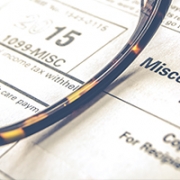Owe the IRS Money? How Long Is the Statute of Limitations?
- Learn about the IRS’s statute of limitations.
- Discover the statute of limitations on filing before the April due date and on filing after the April due date.
- Does an extension change the statute of limitations?
- Find out if filing an amended return affects the statute of limitations.
- What happens if you file your taxes three years late?
- Learn how the statute changes if you understate your income by more than 25%.
- Does a statute of limitations exist if you do not file or in cases of fraud?
- Learn about the ten-year collection period.
- Find out how long you should keep tax records.
- Learn about state statutes of limitation.
Have you ever wondered how long the IRS has to question and assess additional tax on your tax returns? For most taxpayers who reported all their income, the IRS has three years from the date of filing the returns to examine them. This period is termed the statute of limitations. But wait – as in all things taxes, it is not that clean-cut. Fiducial has some complications you should know about below.
What if you file before the April due date?
If you file before the April due date, the three-year statute of limitations still begins on the April due date. So filing early does not start an earlier running of the statute of limitations.
For example, whether you file your 2021 return on February 15, 2022, or April 15, 2022, the statute does not start running until April 18, 2022 (that’s not a typo). The due date for 2021 returns was delayed from April 15 to April 18 because of a holiday in the District of Columbia (Emancipation Day) and a weekend. Note: The April 18th date applies even if you don’t live in DC.
But there’s a further exception for residents of Massachusetts and Maine. The due date for 2021 returns is April 19, 2022, because of a holiday observed in both of those states. So, for residents in these two states, the statute of limitations for 2021 returns begins on the 19th.
You may recall that due to the Covid-19 pandemic, the IRS extended the original due date to May 17, 2021 for 2020 returns and to July 15, 2020 for 2019 returns. As a result, the statute of limitations for refunds expires May 17, 2024 for 2020 returns and July 15, 2023 for 2019 returns.

What happens if you file after the April due date?
The assessment period for a late-filed return starts on the day after the actual filing. This is true whether the lateness is due to a taxpayer’s delinquency, or under a filing extension granted by IRS. For example, say your 2021 return is on extension until October 17, 2022, and you file on September 1, 2022. The statute of limitations for further assessments by the IRS will end on September 2, 2025. So the earlier you file those extension returns, the sooner you start the running of the statute of limitations.
If you want to be cautious, you may wish to retain verification of when the return was filed. For electronically filed returns, you can retain the confirmation from the IRS accepting the electronically filed return. If you file a paper return, you can obtain proof of mailing from the post office when you mail the return.
Does the statute of limitations change if you file an amended tax return?
What if, after filing an original tax return, you subsequently discover you made an error? You may file an amended return to make the correction to the original. The filing of the amended tax return does not extend the statute of limitation unless you file the amended return within 60 days before the limitations period expires. If that occurs, the IRS generally has 60 days from the receipt of the return to assess additional tax.
What if you understated your income by more than 25%?
When a taxpayer underreports their gross income by more than 25%, the three-year statute of limitations increases to six years.
In determining if more than 25% of income has been omitted, capital gains and losses aren’t netted; only gains are taken into account. These “omissions” don’t include amounts for which adequate information is given on the return or attached statements. For this purpose, gross income, as it relates to a trade or business, means the total of the amounts received or accrued from the sale of goods or services, without reduction for the cost of those goods or services.
What if you file three years late?
Suppose you procrastinate and file your return more than 3 years after the April due date for that return. If you owe money, you will have to pay what you owe plus interest and late filing, and late payment penalties. If you have a refund due, you will forfeit that refund and perhaps get stuck with a $450 or more minimum late filing penalty (the amount is adjusted for inflation each year). No refunds are issued in general for returns filed more than 3 years after the filing due date.
Does a statute of limitations exist if you haven’t filed at all?
In situations where no tax return has been filed or there’s fraud (the willful intent to evade tax), there is no statute of limitations for the IRS to assess the tax or additional tax or to take court action.
10-year collection period
Once an assessment of tax has been made within the statutory period, the IRS may collect the tax by levy or court proceeding started within 10 years after the assessment or within any period for collection agreed upon by the taxpayer and the IRS before the expiration of the 10-year period. Also to note, if the IRS receives a court judgment, it may be renewed.
Hold onto tax records until the statute of limitations has ended
Remember not to discard your tax records until after the statute has run its course. When disposing of old tax records, be careful not to discard records that prove the cost of items that have not been sold.
For example, you may have placed home improvement records in with your annual receipts for the year you made the improvement. You don’t want to discard those records until the statute runs out for the year you sold the home. The same applies to purchase records for stocks, bonds, reinvested dividends, business assets, or anything you will sell in the future and need to prove the cost.
We also offer a word of caution about discarding those tax records. To limit your exposure to ID theft, be sure to dispose of the documents safely and securely. Shred paper files. If you store the records on your computer, delete them, or destroy the hard drive when you take the device out of service.
State statutes of limitation
Most, but not all, states follow the federal 3-year statute of limitations and 10-year collection period rules. Need further information about your state’s statute of limitations?
Are you behind on filing your returns and would like to get caught up? Have you discovered you omitted something from your original return and would like to file an amended return? Fiducial can help you with all of these problems and more. Call Fiducial at 1-866-FIDUCIAL or make an appointment at one of our office locations to discuss your situation.
Ready to book an appointment now? Click here. Know someone who might need our services? We love referrals!
For more small business COVID-19 resources, visit Fiducial’s Coronavirus Update Center to find information on SBA loans, tax updates, the Paycheck Protection Program, and paid sick and family leave.









